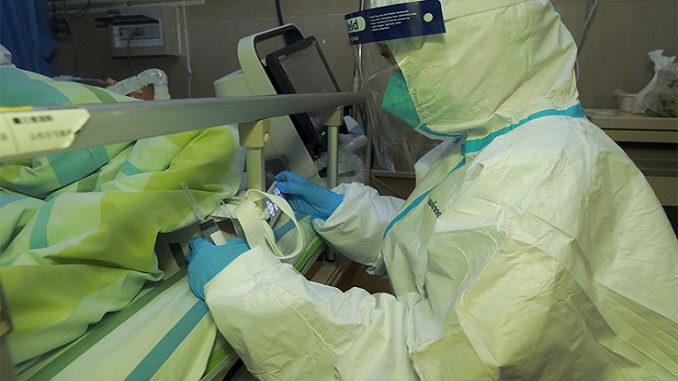
“Be strong, mum, we really love you,” is what Dr. Aurelie Gouel’s kids tell the ICU physician when she sets off for long hospital shifts trying to save critically ill coronavirus patients, The Associated Press writes.
Although aged just 4 and 6, Gouel’s children are acutely aware of how dangerous the disease can be not only because their mother has briefed them but also because she is among the more than 1.6 million people worldwide who have fallen sick.
Tell-tale symptoms – fever, cough, intense fatigue, difficulty breathing – floored Gouel in March.
“It was very tough for three, four days,” she told The Associated Press.
But as soon as she felt well enough, she plunged straight back to work at her Paris hospital that treated Europe’s first fatal case.
“It was quite frustrating being at home and seeing how badly the hospitals needed help,” the 38-year-old said.
“We were trained for this,” she added. “The world needs us.”
In the brutal months since France reported Europe’s first coronavirus cases in January and then, in February, the first death on the continent, the scourge has infected so many thousands of doctors, nurses and other health workers in Europe that some have now recovered and are going from their sick beds back to the front lines.
“It’s a bit like what happened in the First World War. People were wounded and came back to the battlefield,” said Dr. Philippe Montravers, head of anesthesiology and critical care at Bichat Hospital in Paris.
The hospital treated the 80-year-old Chinese tourist who in mid-February became the first person outside Asia to die from COVID-19, AP adds.
“They feel … very guilty staying at home,” Montravers said. ”As soon as they are feeling better, they come back to help.”
As scientists race to unravel the new coronavirus’ mysteries, as yet unsure of how resistant people become to re-infection after exposure, health workers hope that those among them who recovered and are returning to hospitals are now armed not only with a deeper, more personal understanding of the virus but also with some degree of immunity.
That armor against possible reinfection could make them especially useful in the drawn-out battle until a vaccine is found, AP noted.

Be the first to comment